第35章 THE EASTER OF THE SOUL(1)
It is hardly likely that a goddess may die. Then Eastre, the old Saxon goddess of spring, must be laughing in her muslin sleeve at people who believe that Easter, her namesake, exists only along certain strips of Fifth Avenue pavement after church service.
Aye! It belongs to the world. The ptarmigan in Chilkoot Pass discards his winter white feathers for brown; the Patagonian Beau Brummell oils his chi- gnon and clubs him another sweetheart to drag to his skull-strewn flat. And down in Chrystie Street --
Mr. "Tiger" McQuirk arose with a feeling of disquiet that be did not understand. With a prac- tised foot be rolled three of his younger brothers like logs out of his way as they lay sleeping on the floor.
Before a foot-square looking glass hung by the win- dow he stood and shaved himself. If that may seem to you a task too slight to be thus impressively chron- icled, I bear with you; you do not know of the areas to be accomplished in traversing the cheek and chin of Mr. McQuirk.
McQuirk, senior, had gone to work long before.
The big son of the house was idle. He was a marble- cutter, and the marble-cutters were out on a strike.
"What ails ye?" asked his mother, looking at him curiously; "are ye not feeling well the morning, maybe now?"
"He's thinking along of Annie Maria Doyle, im- pudently explained younger brother Tim, ten years old."
"Tiger" reached over the hand of a champion and swept the small McQuirk from his chair.
"I feel fine," said he, "beyond a touch of the I-don't-know-wbat-you-call-its. I feel like there was going to be earthquakes or music or a trifle of chills and fever or maybe a picnic. I don't know how I feel. I feel like knocking the face off a policeman, or else maybe like playing Coney Island straight across the board from pop-corn to the elephant boudabs."
"It's the spring in yer bones," said Mrs. McQuirk.
"It's the sap risin'. Time was when I couldn't keep me feet still nor me head cool when the earthworms began to crawl out in the dew of the mornin'. 'Tis a bit of tea will do ye good, made from pipsissewa and gentian bark at the druggist's."
"Back up!" said Mr. McQuirk, impatiently.
"There's no spring in sight There's snow yet on the shed in Donovan's backyard. And yesterday they puts open cars on the Sixth Avenue lines, and the janitors have quit ordering coal. And that means six weeks more of winter, by all the signs that be."
After breakfast Mr. McQuirk spent fifteen minutes before the corrugated mirror, subjugating his hair and arranging his green-and-purple ascot with its amethyst tombstone pin-eloquent of his chosen calling.
Since the strike had been called it was this par- ticular striker's habit to hie himself each morning to the corner saloon of Flaherty Brothers, and there establish himself upon the sidewalk, with one foot resting on the bootblack's stand, observing the panorama of the street until the pace of time brought twelve o'clock and the dinner hour. And Mr.
"Tiger" McQuirk, with his athletic seventy inches, well trained in sport and battle; his smooth, pale, solid, amiable face -- blue where the razor had trav- elled; his carefully considered clothes and air of capa- bility, was himself a spectacle not displeasing to the eye.
But on this morning Mr. McQuirk did not hasten immediately to his post of leisure and observation.
Something unusual that he could not quite grasp was in the air. Something disturbed his thoughts, ruffled his senses, made him at once languid, irritable, elated, dissastisfied and sportive. He was no diagnostician, and he did not know that Lent was breaking up physiologically in his system.
Mrs. McQuirk had spoken of spring. Sceptically Tiger looked about him for signs. Few they were. The organ-grinders were at work; but they were always precocious harbingers. It was near enough spring for them to go penny-hunting when the skating ball dropped at the park. In the milliners' windows Easter hats, grave, gay and jubilant, blos- somed. There were green patches among the side- walk debris of the grocers. On a third-story window- sill the first elbow cushion of the season -- old gold stripes on a crimson ground -- supported the kimo- noed arms of a pensive brunette. The wind blew cold from the East River, but the sparrows were fly- ing to the eaves with straws. A second-hand store, combining foresight with faith, had set out an ice- chest and baseball goods.
And then "Tiger's" eye, discrediting these signs, fell upon one that bore a bud of promise. From a bright, new lithograph the head of Capricornus con- fronted him, betokening the forward and heady brew.
Mr. McQuirk entered the saloon and called for his glass of bock. He threw his nickel on the bar, raised the glass, set it down without tasting it and strolled toward the door.
"Wot's the matter, Lord Bolinbroke?" inquired the sarcastic bartender; want a chiny vase or a gold-lined epergne to drink it out of -- hey?"